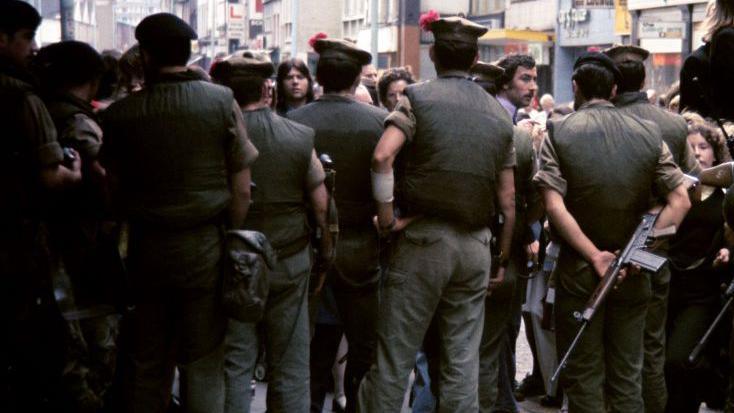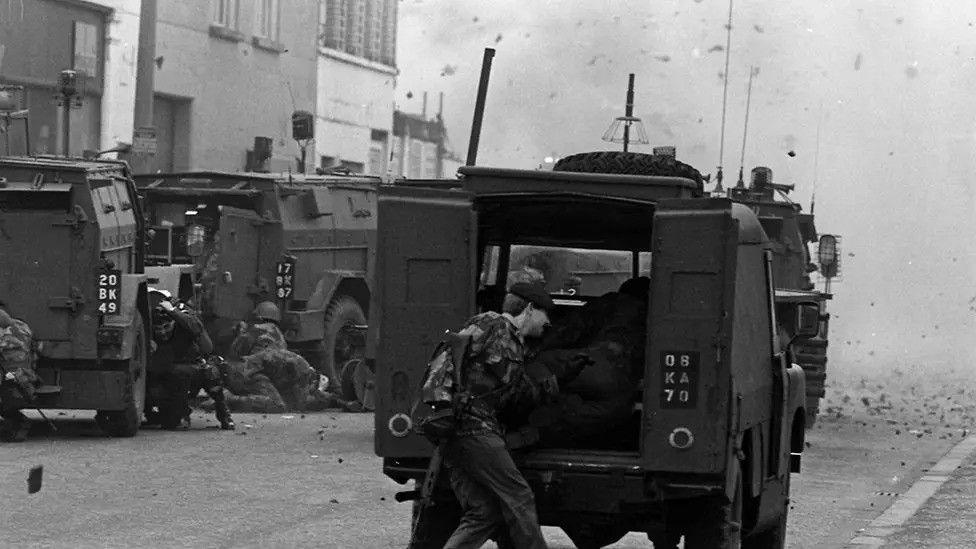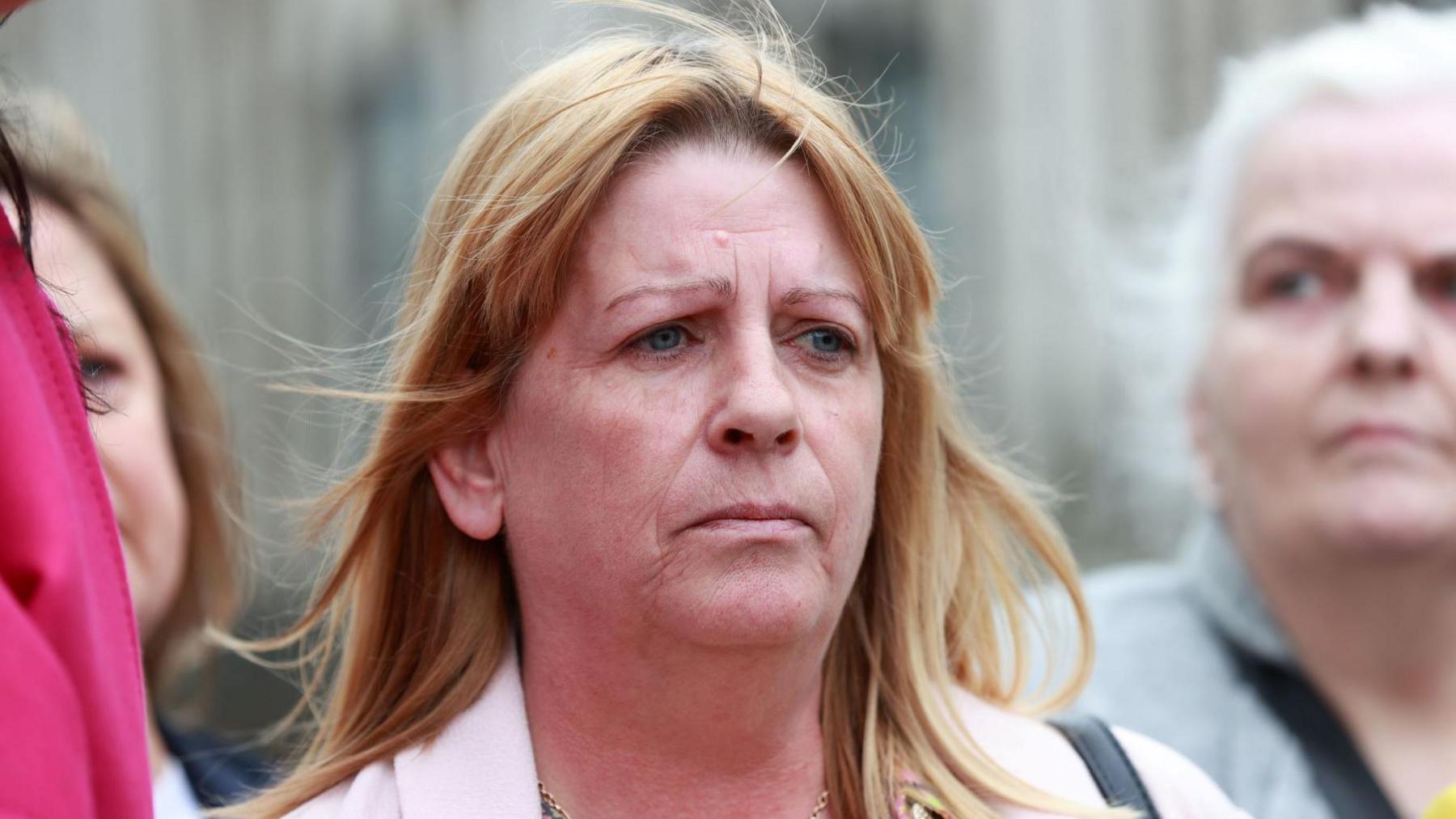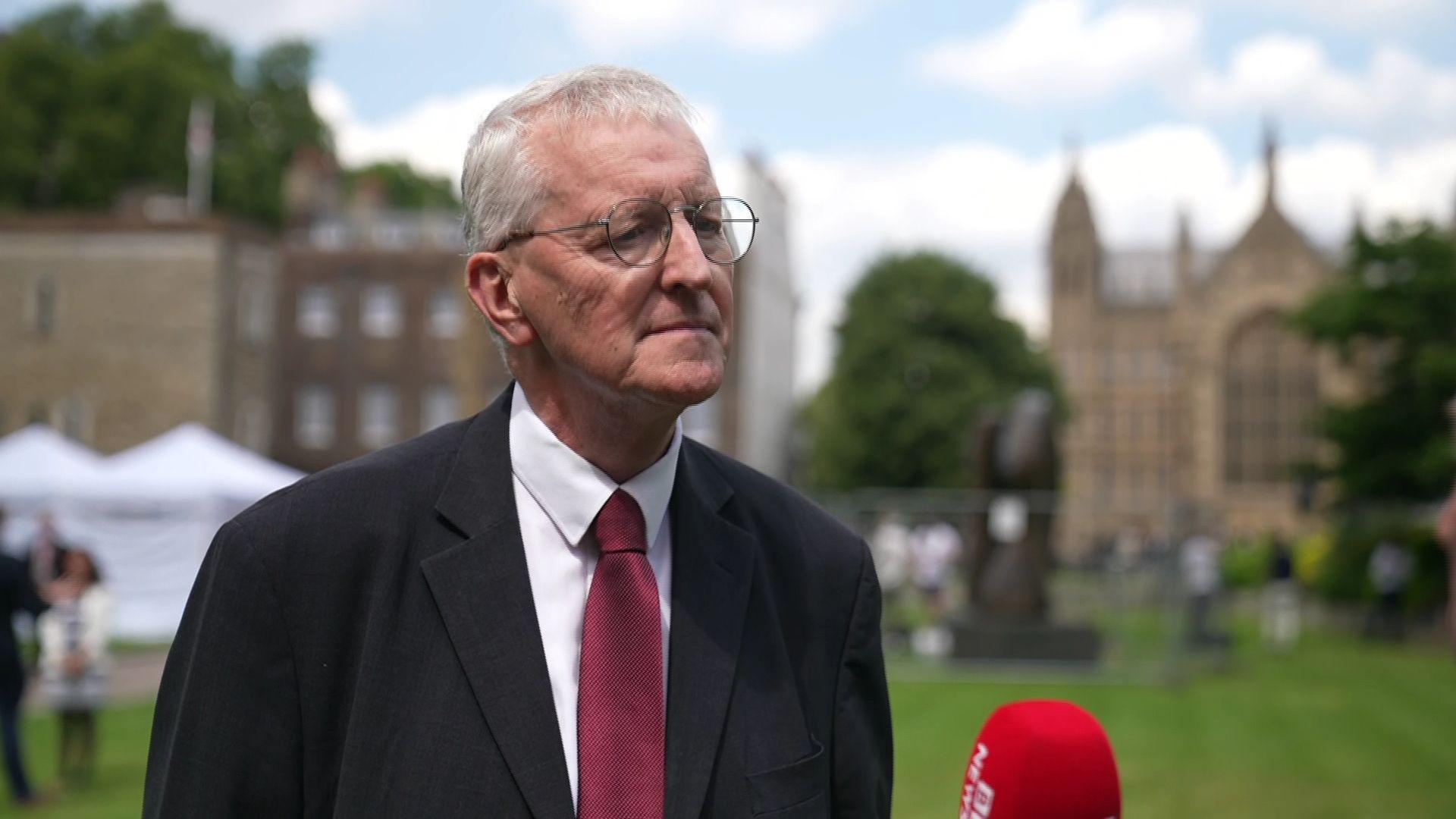Legacy Act gives government too much power, court rules

British soldiers block a Belfast city centre street following an IRA bomb threat in April 1972
- Published
The Troubles Legacy Act gives the UK government too much veto power over the disclosure of material by a new commission which is investigating killings, senior judges in Belfast have ruled.
The Northern Ireland Court of Appeal gave its judgement in a case brought by a number of bereaved relatives, who argued the commission was not sufficiently independent.
The case focused on whether the legislation passed by the previous Conservative government fulfilled international human rights law.
The Labour government has said it will repeal key aspects of the legislation, including a controversial measure to give a conditional amnesty to suspects who gave accurate information.

However it has said it wants to retain the Independent Commission for Reconciliation and Information Recovery (ICRIR) which was set up to take over most investigations.
Several victims’ groups want the ICRIR to be scrapped.
Lady Chief Justice Siobhan Keegan said the legislation gave the Northern Ireland secretary “the final say” on disclosure of sensitive state information by the ICRIR.
She said this would risk undermining public confidence in the body.
She was one of three judges who ruled that the disclosure arrangements were incompatible with the European Convention on Human Rights.

Martina Dillon's husband Seamus was murdered in 1997
'Let the truth finally come out'
Outside court, Martina Dillon – whose husband Seamus was shot dead in a loyalist attack at the Glengannon Hotel in Dungannon, County Tyrone, in 1997 – said the ruling marked a “brilliant day for victims”.
Ms Dillon called for the chief commissioner of the ICRIR, Sir Declan Morgan, to resign.
“We’re asking him to now step down and for the government to give us back our inquest and give them as soon as possible," she said.
“Let the victims speak. Let us be heard. Let the truth finally come out.”
Daniel Holder, the director of Belfast-based human rights group the Committee on the Administration of Justice (CAJ), welcomed the ruling but stressed doubts remained about the ICRIR’s independence.
“We have repeatedly raised concerns about the national security veto over information to families and that the ICRIR could not operate in a manner comparable to inquests,” Mr Holder said.
"The Court of Appeal, also like the High Court, left open the questions about ICRIR independence to individual cases.
“This should not be spun or misrepresented as some sort of endorsement of ICRIR independence."
ICRIR's Chief Commissioner, Sir Declan Morgan, said he welcomed "the fact that the appeal court in the case of Dillon et al has agreed with the trial judge that the Commission is independent.''
He added: ''It also determined that an accessible and foreseeable structure should be put in place for the participation of victims, survivors and families for some of our cases.''
Sir Declan said the Secretary of State needs to "respond to the judgement".
"The Commission has already welcomed his proposal to further enhance our independence and would welcome additional steps by him to address the issues identified by the court," he added.
A UK Government spokesperson said the government will take "the necessary time to consider our next steps on this complex judgement".
The spokesperson added: "The Government is committed to addressing the legacy of the past in a way that can obtain the support of victims and survivors, and comply with our human rights obligations."

Mairead Kelly whose brother Patrick was shot dead by soldiers in Loughgall in 1987
Mairead Kelly, whose brother Patrick was one of eight IRA men shot dead by soldiers in Loughgall, County Armagh in 1987, said it was time for an inquest to be held into the deaths.
“The ICRIR was never acceptable to our families,” she said.
“It’s a government initiative, it doesn’t matter what way it is dressed up."
What is the Northern Ireland Troubles (Legacy and Reconciliation) Act?
The act was passed by the Conservative government in September 2023 despite opposition from Labour, all Northern Ireland parties, several victims' groups and the Irish government.
It created a new legacy body known ICRIR to take over all Troubles-era cases from 1 May 2024, including those on the desk of the Police Service of Northern Ireland.
The act shuts down all historical inquests.
The act's most controversial element, the offer of conditional immunity to suspects, has been disapplied following legal action by bereaved families.
The court ruled this part of the act was incompatible with human rights' legislation and the Windsor Framework.
In late July, the Labour government wrote to the Belfast courts abandoning an appeal against the striking out of the amnesty clause in the legislation.
Related topics
- Published29 August 2024

- Published17 July 2024
